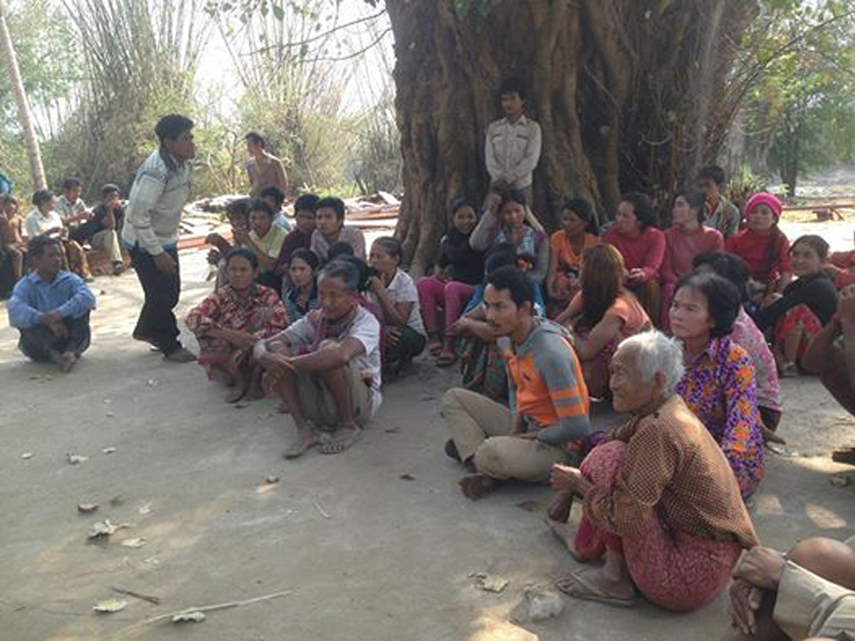
Verse 53: As from a collection of flowers many a garland can be made by an expert florist, so also, much good can be done (with wealth, out of faith and generosity) by one subject to birth and death.
1. kattabbam kusalam bahum: much good may be done. According to the Commentary, it means many deeds of merit should be done with wealth, out of faith and generosity.
While residing at the Pubbarama monastery in Savatthi, the Buddha uttered Verse (53) of this book, with reference to Visakha, the famous donor of the Pubbarama monastery.
When Visakha was seven years old, the Buddha came on a tour to Bhaddiya. On that occasion, the rich man Mendaka took Visakha and her five hundred companions with him to pay homage to the Buddha. After hearing the discourse given by the Buddha, Visakha, her grandfather and all her five hundred companions attained Sotapatti Fruition.
When Visakha came of age, she married Punnavadahana, son of Migara, a fairly rich man from Savatthi. One day, while Migara was having his meal, a bhikkhu stopped for alms at his house; but Migara completely ignored the bhikkhu. Visakha, seeing this, said to the bhikkhu, “I am sorry, your reverence, my father-in-law only eats leftovers.” On hearing this, Migara flew into a rage and told her to leave his house. But Visakha said she was not going away, and that she would send for the eight elderly rich men who were sent by her father to accompany her and to advise her. It was for them to decide whether she was guilty or not. When the elders came, Migara said to them, “While I was having my rice-with-milk in a golden bowl, Visakha said that I was taking only dirt and filth. For this offence, I’m sending her away.” Thereupon, Visakha explained as follows: “When I saw my father-in-law completely ignoring the bhikkhu standing for alms-food, I thought to myself that my father-in-law was not doing any meritorious deed in this existence. he was only eating the fruits of his past good deeds. So, I said, ‘My father-in-law only eats leftovers.’ Now Sirs, what do you think, am I guilty?” The elders decided that Visakha was not guilty. Visakha then said that she was one who had absolute and unshakable faith in the Teaching of the Buddha and so could not stay where the bhikkhus were not welcome; and also, that if she was not given permission to invite the bhikkhus to the house to offer alms-food and make other offerings, she would leave the house. So permission was granted to her to invite the Buddha and his bhikkhus to the house.
The next day, the Buddha and his disciples were invited to the house of Visakha. When alms-food was about to be offered, she sent word to her father-in-law to join her in offering food; but he did not come. When the meal was over, again she sent a message, this time requesting her father-in-law to join her in hearing the discourse that would soon be given by the Buddha. Her father-in-law felt that he should not refuse for a second time. But his ascetic teachers, the Niganthas, would not let him go; however, they conceded that he could listen from behind a curtain. After hearing the Buddha’s discourse Migara attained Sotapatti Fruition. He felt very thankful to the Buddha and also to his daughter-in-law. Being so thankful, he declared that henceforth Visakha would be like a mother to him, and Visakha came to be known as Migaramata.
Visakha gave birth to ten sons and ten daughters, and ten sons and ten daughters each were born to everyone of her children and grand-children. Visakha possessed an immensely valuable gem-encrusted cloak given by her father as a wedding present. One day, Visakha went to the Jetavana monastery with her entourage. On arrival at the monastery, she found that her bejeweled cloak was too heavy. So, she took it off, wrapped it up in her shawl, and gave it to the maid to hold it and take care of it. The maid absentmindedly left it at the monastery. It was the custom for the Venerable Ananda to look after the things left by any one of the lay disciples. Visakha sent the maid back to the monastery saying, “Go and look for the bejeweled cloak, but if the Venerable Ananda had already found it and kept it in a place do not bring it back; I donate the bejeweled cloak to the Venerable Ananda.” But the Venerable Ananda did not accept her donation. So Visakha decided to sell the bejeweled cloak and donate the sale proceeds. But there was no one who could afford to buy that bejeweled cloak. So Visakha bought it back for nine crores and one lakh. With this money, she built a monastery on the eastern side of the city; this monastery came to be known as Pubbarama.
After the libation ceremony she called all her family to her and on that night she told them that all her wishes had been fulfilled and that she had nothing more to desire. Then reciting five verses of exultation she went round and round the monastery. Some bhikkhus hearing her, thought she was singing and reported to the Buddha that Visakha was not like before, and that she was going round and round the monastery, singing. “Could it be that she had gone off her head?” they asked the Buddha. To this question, the Buddha replied, “Today, Visakha had all her wishes of the past and present existences fulfilled and on account of that sense of achievement, she was feeling elated and contented; Visakha was just reciting some verses of exultation; she certainly had not gone off her head. Visakha, throughout her previous existences, had always been a generous donor and an ardent promoter of the Doctrine of successive Buddhas. She was most strongly inclined to do good deeds and had done much good in her previous existences, just as an expert florist makes many garlands from a collection of flowers.”
Then the Buddha spoke in verse as follows:
Verse 53: As from a collection of flowers many a garland can be made by an expert florist, so also, much good can be done (with wealth, out of faith and generosity) by one subject to birth and death.
Dhammapada Verse 53
Visakha Vatthu
Yathapi puppharasimha
kayira malagune bahu
evam jatena maccena
kattabbam kusalam bahum
Source: Tipitaka











